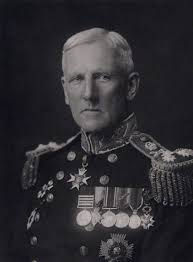The Anniversary of the Battle of Jutland
- Shaun Lewis
- May 31, 2019
- 2 min read
Today, on 31st May in 1916, 250 British and German ships met in what became known in the Battle of Jutland. The battle was to last until the following day and both sides suffered nearly 10,000 casualties. Fourteen Royal Navy ships and eleven German ships were sunk. Most of the casualties were on the British side. Over 6,000 Royal Navy sailors died. The German ships were not only better armoured, but built with more watertight compartments. Whereas the RN ships were designed to circle the world, the Germans only designed their ships to fight in the North Sea and so crew comfort was not a priority. Overall, the Imperial German Navy came off better in the battle, but the RN gained a strategic victory in that the High Seas Fleet was largely confined to port for the rest of the war.
Admiral Jellicoe was the Commander-in-Chief of the Grand Fleet during the Battle of Jutland. He was a cautious man and has been criticised for failing to achieve a decisive victory at Jutland. However, with limited intelligence of the German Fleet’s movements, he probably handled the Grand Fleet as well as anybody could have expected. As Churchill said, he was “the only man on either side who could lose the war in an afternoon”.
Following the battle, Jellicoe was promoted to the appointment of First Sea Lord and replaced as Commander-in-Chief by Beatty. It was not to be a successful office for Jellicoe.
Unfortunately, Jellicoe was a pessimist and some would say a defeatist. As the First Sea Lord he briefed the new Prime Minister, Lloyd George, nothing could be done to counter the U-boat threat and initially imposed the introduction of the convoy system. Lloyd George soon reached the conclusion that Jellicoe would have to go, but it took several more months before Jellicoe was sacked at the end of 1916. Nonetheless, he was promoted to Admiral of the Fleet in 1919 and appointed as Governor General of New Zealand in 1920. He was elevated to the peerage on his return to Britain in 1925 and died ten years later.
Despite Jellicoe’s reputation for caution in high command, few people today recognise his heroism in the late 1800s. He commanded a rifle company of the Naval Brigade during the Egyptian War of 1892 and served with distinction in China during the Boxer Rebellion. At the Battle of Beicang, in 1900, he personally led the Naval Brigade in an assault on the Boxers’ heavily defended position and was shot in the chest, his wounds so bad that he was not expected to live. His actions were later rewarded with the CB and a German decoration for gallantry. Despite his failure as First Sea Lord, he was highly regarded by his fellow admirals for his sense of duty, courage and dignity.







Comments